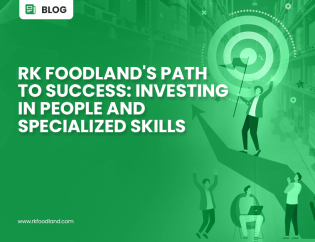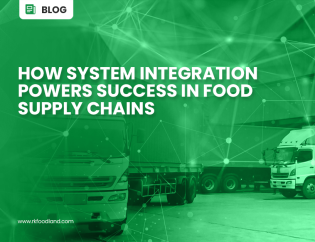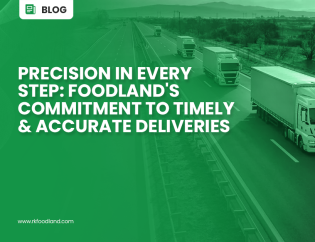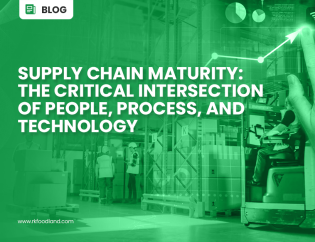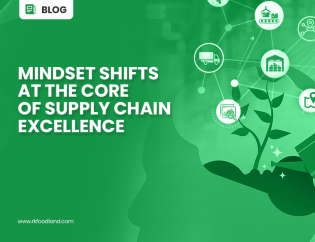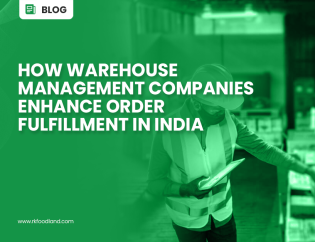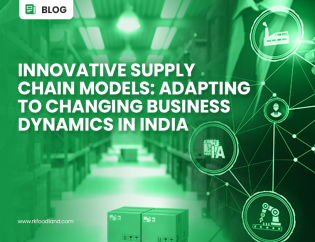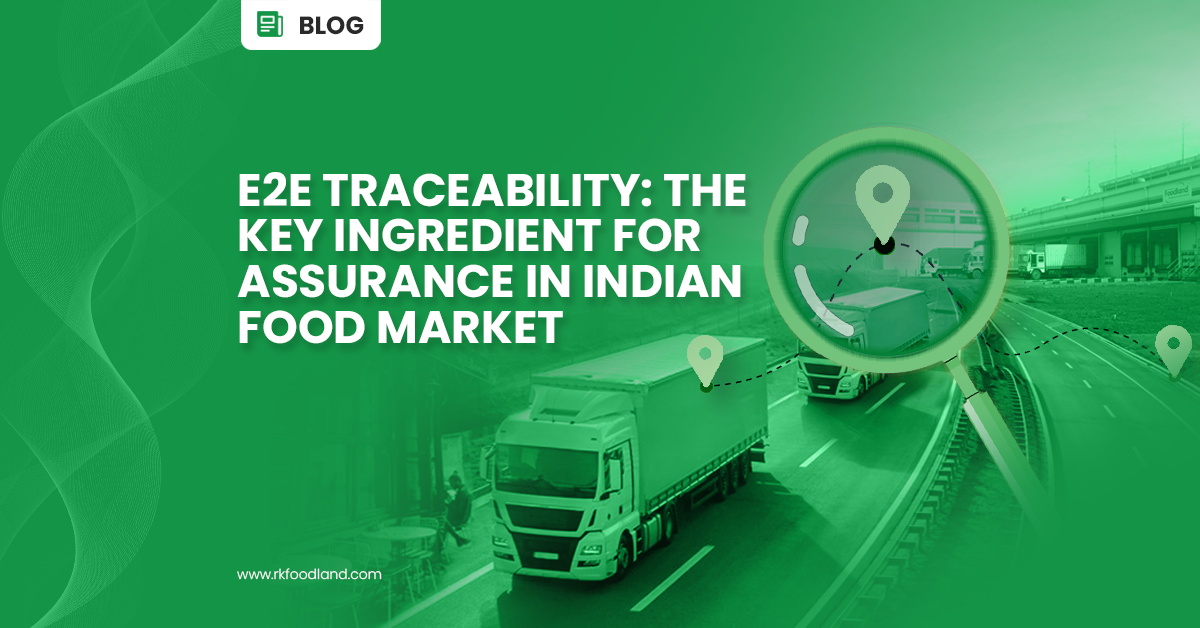
[Avg. Read Time < 3 mins]
As India’s food sectors evolve, the focus magnifies on the processed food segments, areas where traceability could significantly uplift quality assurance and supply chain resilience. By integrating traceability, businesses can adeptly manage risks, streamline operations, and meet the standards of today’s informed consumers. Such an integrated approach can drastically reduce the 5-15% wastage in perishables, equating to a loss of around $13 billion annually. As we move forward, embracing E2E traceability in the processed food sector is not just about staying compliant, but about seizing a strategic advantage in a market driven by transparency and accountability.
Traceability a crucial factor in Food Sector
In the intricate web of India’s Food Service and FMCG sectors, where an estimated 45% of the food produced never reaches the consumer due to supply chain inefficiencies, traceability stands as a critical response to a deep-rooted problem. This isn’t just a statistic; it’s a day-to-day reality for businesses. Take, for example, a regional FMCG company that finds a significant portion of its perishables compromised before reaching the market. Here, traceability becomes the diagnostic tool that identifies where and how these losses occur—be it through delayed transit times or inadequate cold storage facilities. By implementing a traceable supply chain, this company could not only reduce the loss due to waste but also enhance its competitive edge in a market that is increasingly placing a premium on sustainable practices. It’s a shift from reactive problem-solving to proactive value creation, where every stakeholder from suppliers to consumer benefits from the transparency and efficiency that traceability brings.
Navigating India’s Supply Chain Complexities
The current Indian supply chain landscape is marked by rapid growth and notable challenges, characterized by logistics sector valued at $215 billion yet hampered by high costs, infrastructural deficits, and limited technology adoption. Efforts to reimagine this landscape are underway, aiming to enhance efficiency, reduce costs, and integrate cutting-edge technologies for better resilience and traceability.
However, the path to navigating these complexities is lightened by the following strategic pillars:
- Technology Integration: The adoption of technologies such as AI, blockchain, and IoT is essential for building resilient supply chains, especially in the food sectors.
- Efficiency Optimization: By digitizing 80-90% of supply chain operations, India can streamline processes, optimize logistics costs, and create agile supply chain networks.
- Talent Development: Enhancing the skill sets of local supply chain talent is crucial for adopting global safety standards and ensuring end-to-end visibility.
By focusing on these strategic areas, India’s Food Service and FMCG businesses can transform their supply chains into world-class operations, ready to meet the demands of a rapidly growing economy.
RK Foodland’s SCM Leadership in India
In the ever-evolving landscape of India’s supply chain, the role of a reliable and capable supply chain partner cannot be overstated. RK Foodland has been instrumental in bolstering the supply chain capabilities of its partners for the past 35+ years, giving them a competitive edge in a complex market. Foodland’s commitment to quality is matched by the comprehensive approach to supply chain excellence, which stands on the tripod of cutting-edge technology, efficient processes, and skilled people.
With an integrated approach, the foundation to supply chain excellence is built on data, insights, and collaboration. Foodland leverages its proprietary assets, extensive experience, and deep understanding of the Indian food ecosystem to provide clients with end-to-end solutions that span the entire supply chain, from sourcing to fulfilment.
- End-to-end solutions for sourcing, procurement, warehousing, transportation, order management, and fulfilment.
- Data-driven solutions informed by on-the-ground realities and tuned to clients’ needs.
- Nuanced understanding of the Indian food ecosystem’s diversity, scale, and challenges.
- Visibility, traceability, and predictability at every stage of the supply chain using technologies and processes to collect and analyse data.
RK Foodland is more than just a supply chain partner. We bring a deep understanding of the Indian food ecosystem, a commitment to innovation, and a global outlook to the table. We work closely with our clients to develop and deliver solutions that are tailored to their specific needs and challenges, helping them to achieve excellence in their supply chain operations.
In conclusion, the need for traceability within India’s food market is clear. It serves as the key for quality assurance, waste reduction, and supply chain strength. Companies such as RK Foodland lead by offering solutions, using technology, and developing talent to manage the food supply chain. For India’s Food Service and FMCG sectors, adopting traceability goes beyond compliance; it is a necessity that offers a competitive advantage. With traceability, the Indian food market can reach new levels of efficiency, transparency, and trust, ensuring it meets and surpasses international standards.
Connect with our expert to discover the benefits of integrated supply chains and the power of traceability!
Related Content | Foodland’s Resources
Why we need ‘traceability’ in the food supply chain
Indian perspective in food traceability: A review
Ensuring Food Security Through End-to-End Traceability: A Global Perspective
Mitigating Risks, Building Trust: The Significance of Traceability in Food Safety


